Here are a couple things I know after almost 12 years of writing about anime:
- There are times when I’m simply not going to agree with the general zeitgeist, and there’s nothing I can do about it.
- When it comes to the very popular – be they writers, studios, or something else – very often my favorites are among their least popular works.
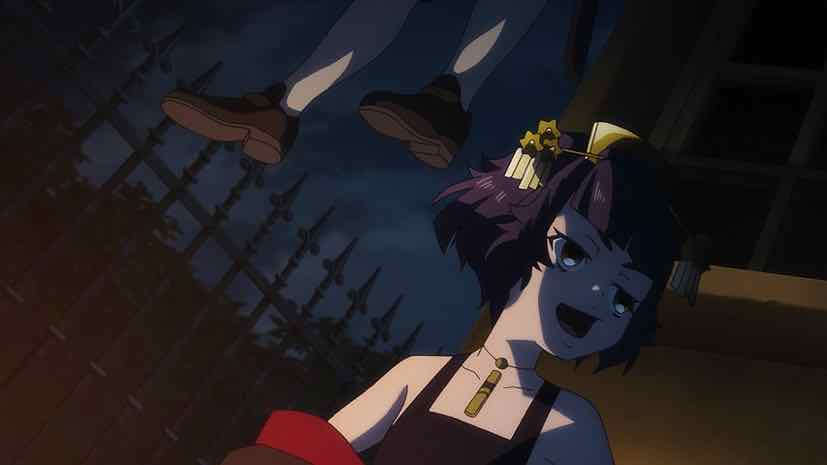 I don’t know if it’s fair to talk about Urobuchi Gen as if he were a power player in anime these days – his name doesn’t have the cachet it used to. But he’s written some extremely powerful and influential stuff – influential to the point where he’s sort of become a sub-genre of his own, with many imitators inhabiting it. What I find is that Urobuchi seems most engaged these days when he’s doing the least “anime” projects – be they Chinese puppet series, or homages to old jidaigeki dramas like Hissatsu Shigotonin. And engagement is everything with Urobutcher, who even at his commercial peak tended to check out long before one of his series was finished.
I don’t know if it’s fair to talk about Urobuchi Gen as if he were a power player in anime these days – his name doesn’t have the cachet it used to. But he’s written some extremely powerful and influential stuff – influential to the point where he’s sort of become a sub-genre of his own, with many imitators inhabiting it. What I find is that Urobuchi seems most engaged these days when he’s doing the least “anime” projects – be they Chinese puppet series, or homages to old jidaigeki dramas like Hissatsu Shigotonin. And engagement is everything with Urobutcher, who even at his commercial peak tended to check out long before one of his series was finished.
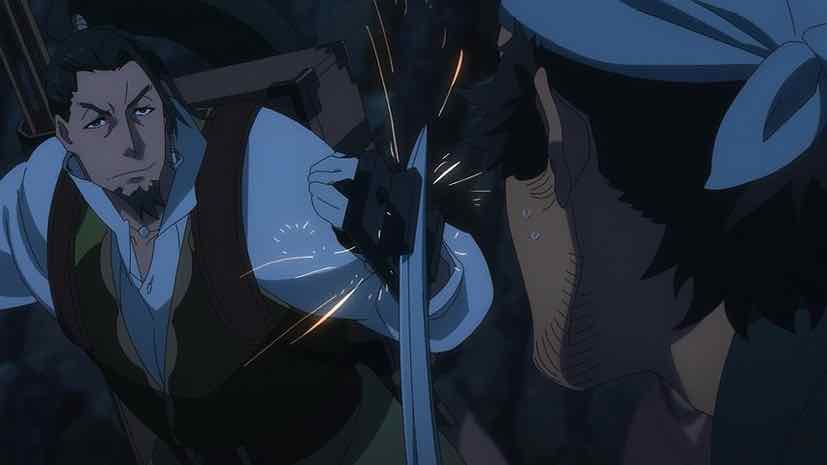 He didn’t check out with Revenger – not in my opinion. As I said in last week’s post, the advantage of original anime in the hands of a good writer is that they can craft a story to fit the schedule it inhabits. I never got the sense that there were any asspulls or U-turns with this show – Urobuchi wrote it in its entirety, knew how it would start, progress, and end. He was free from the constraints of anime tropes in a way that clearly liberated him, and the end product was as much a slightly stylized live-action drama in style as it was anime. That – along with Futamata Jun’s gorgeous soundtrack – worked splendidly for me.
He didn’t check out with Revenger – not in my opinion. As I said in last week’s post, the advantage of original anime in the hands of a good writer is that they can craft a story to fit the schedule it inhabits. I never got the sense that there were any asspulls or U-turns with this show – Urobuchi wrote it in its entirety, knew how it would start, progress, and end. He was free from the constraints of anime tropes in a way that clearly liberated him, and the end product was as much a slightly stylized live-action drama in style as it was anime. That – along with Futamata Jun’s gorgeous soundtrack – worked splendidly for me.
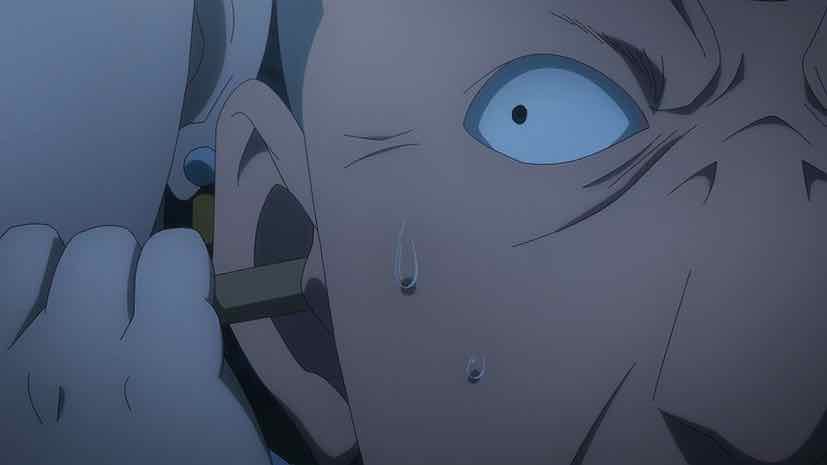 If anything I’m reminded of Mars Red here. Not so much by the material itself, though both share a very non-traditional approach to anime. It’s more about the reception, which amounted more than anything to widespread indifference. My esteem for both series is vastly out of step with both their popularity and widespread opinion. Mars Red is the better of the two series to be sure, and even more non-traditional (as befits a show adapted from a staged reading). But Revenger is awfully, awfully good – and it remained true to itself (and its creator) right till the end.
If anything I’m reminded of Mars Red here. Not so much by the material itself, though both share a very non-traditional approach to anime. It’s more about the reception, which amounted more than anything to widespread indifference. My esteem for both series is vastly out of step with both their popularity and widespread opinion. Mars Red is the better of the two series to be sure, and even more non-traditional (as befits a show adapted from a staged reading). But Revenger is awfully, awfully good – and it remained true to itself (and its creator) right till the end.
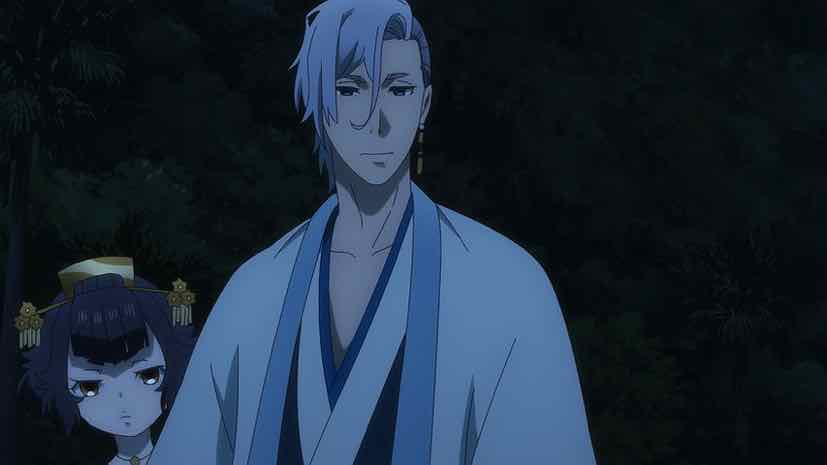 In that sense, it probably wouldn’t have been unrealistic to expect an “everybody dies” ending – I certainly didn’t discount the possibility, though I wouldn’t say I expected it. Raizou has, as Sada said, been looking for a place to die for pretty much the entire series. I suppose it would have been a greater penance for him to go on living, as was reflected in his indifference towards creating any art that didn’t give vent to his anguish and guilt. As to the others, that was an open question. I don’t think Raizou was the only one prepared to die on the day of the final confrontation (in the end, he didn’t). And I think what this amounts to for Yuuen and the others is a reprieve, not a pardon.
In that sense, it probably wouldn’t have been unrealistic to expect an “everybody dies” ending – I certainly didn’t discount the possibility, though I wouldn’t say I expected it. Raizou has, as Sada said, been looking for a place to die for pretty much the entire series. I suppose it would have been a greater penance for him to go on living, as was reflected in his indifference towards creating any art that didn’t give vent to his anguish and guilt. As to the others, that was an open question. I don’t think Raizou was the only one prepared to die on the day of the final confrontation (in the end, he didn’t). And I think what this amounts to for Yuuen and the others is a reprieve, not a pardon.
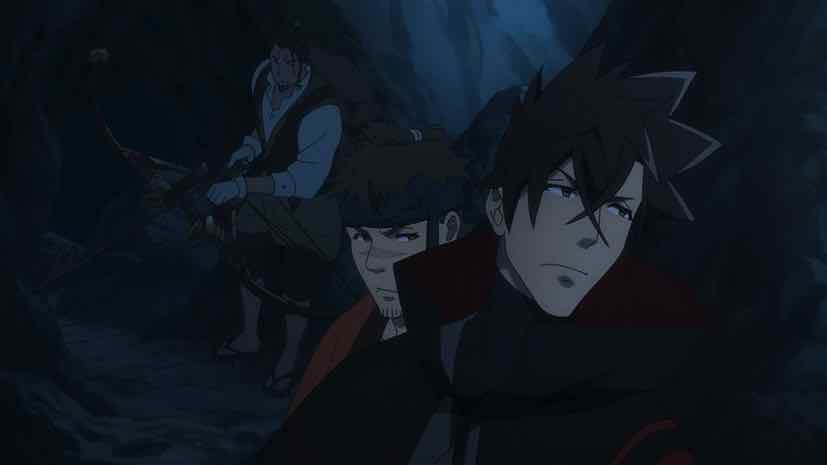 In point of fact, I strongly suspected that it would be Sute who would be the instrument of Raizou’s demise, though I was half-expecting it to be on that fateful night. He disappeared from the screen in such a fashion that it was clear his role in the story was not finished. That story found Yuuen and Nio going to Shishido’s villa to deal with that half of Liu’s revenge, while the others went to the island where Sada and his team awaited them. Both settings were rather gripping in their own way, though there was more certitude about the outcome with Yuuen and Nio.
In point of fact, I strongly suspected that it would be Sute who would be the instrument of Raizou’s demise, though I was half-expecting it to be on that fateful night. He disappeared from the screen in such a fashion that it was clear his role in the story was not finished. That story found Yuuen and Nio going to Shishido’s villa to deal with that half of Liu’s revenge, while the others went to the island where Sada and his team awaited them. Both settings were rather gripping in their own way, though there was more certitude about the outcome with Yuuen and Nio.
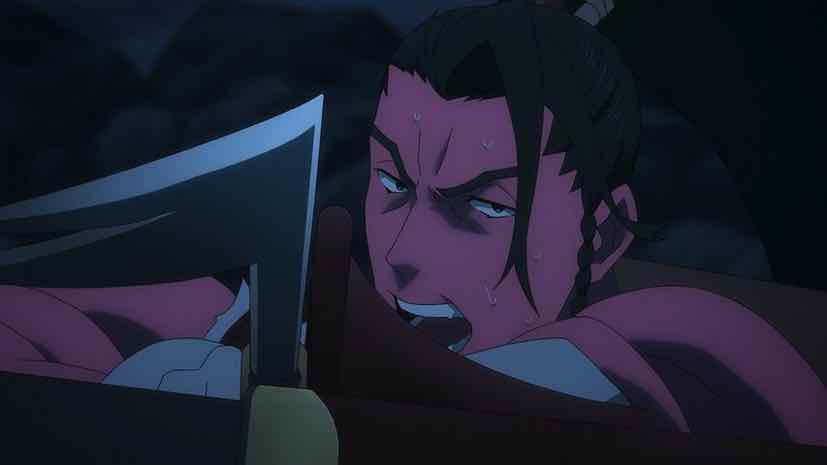 The most revealing moment of that storyline for me was Nio’s reaction to the death of Shishido’s tiger, on some level the first real sign of compassion we’ve seen from him. This whole scene was the Reben-ji with the mask ripped off. There was no art or artifice to it – it was mass-produced slaughter, the logical end product of what they do. There were no room for anything else, and no pretending that all those people – simply hired hands, no more – deserved their fate any more than the tiger did. Shishido is evil in a way the Reben-ji are not, undeniably. But the path they’ve chosen is one way (I’ve said that before, too). Maybe it’s bleakly hopeful that Nio – the youngest and most cold-hearted among them – is capable of feeling empathy for anything, even if it’s not another person.
The most revealing moment of that storyline for me was Nio’s reaction to the death of Shishido’s tiger, on some level the first real sign of compassion we’ve seen from him. This whole scene was the Reben-ji with the mask ripped off. There was no art or artifice to it – it was mass-produced slaughter, the logical end product of what they do. There were no room for anything else, and no pretending that all those people – simply hired hands, no more – deserved their fate any more than the tiger did. Shishido is evil in a way the Reben-ji are not, undeniably. But the path they’ve chosen is one way (I’ve said that before, too). Maybe it’s bleakly hopeful that Nio – the youngest and most cold-hearted among them – is capable of feeling empathy for anything, even if it’s not another person.
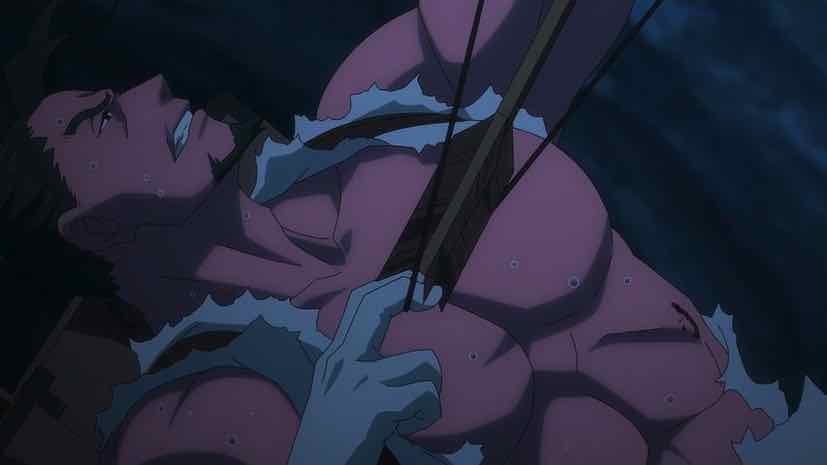 On the island, it simply comes down to the fact that the Reben-ji are better than Sada’s men. Maybe it’s because they’re fighting for a cause of sorts, something more than money anyway. Any sense of idealism rings hollow, but with Sada it truly could not be more detached and craven – it’s just about getting paid and the details don’t matter. The strength Raizou found to complete the tasks came both from the fact that he was not prepared to let the world face what would happen if he failed, and because he truly harbored no ambition to survive. He had both more to gain and less to lose than Sada, and that in the end was the difference.
On the island, it simply comes down to the fact that the Reben-ji are better than Sada’s men. Maybe it’s because they’re fighting for a cause of sorts, something more than money anyway. Any sense of idealism rings hollow, but with Sada it truly could not be more detached and craven – it’s just about getting paid and the details don’t matter. The strength Raizou found to complete the tasks came both from the fact that he was not prepared to let the world face what would happen if he failed, and because he truly harbored no ambition to survive. He had both more to gain and less to lose than Sada, and that in the end was the difference.
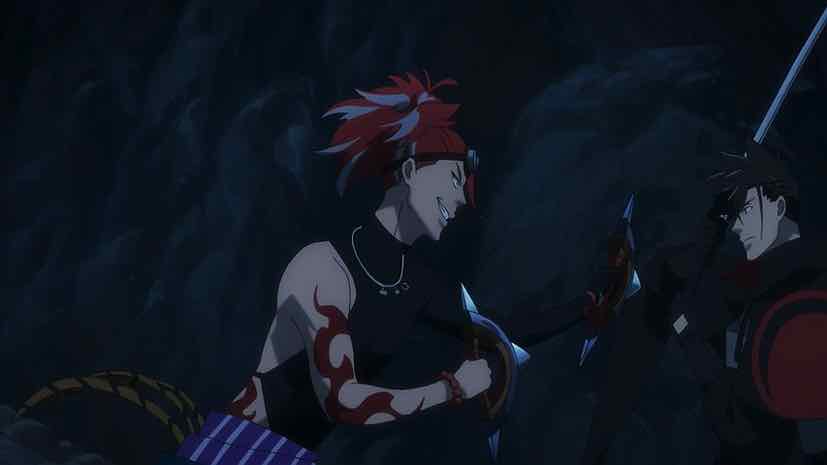 The Reben-ji continue on, then – still in the service of Kanou, it seems, though there are no pretenses between them now. But they do the unthinkable and break their oath – though in a sense they did “kill” Raizou, leaving Taishin in his place. It’s interesting that Raizou finally met his end in the place where his part in this story really began, under that bridge – which makes me wonder if he went there with an intention to do just that. Perhaps he never would have found the strength to end his life as a samurai, thinking himself undeserving of that – we’ll never know, thanks to Sute.
The Reben-ji continue on, then – still in the service of Kanou, it seems, though there are no pretenses between them now. But they do the unthinkable and break their oath – though in a sense they did “kill” Raizou, leaving Taishin in his place. It’s interesting that Raizou finally met his end in the place where his part in this story really began, under that bridge – which makes me wonder if he went there with an intention to do just that. Perhaps he never would have found the strength to end his life as a samurai, thinking himself undeserving of that – we’ll never know, thanks to Sute.
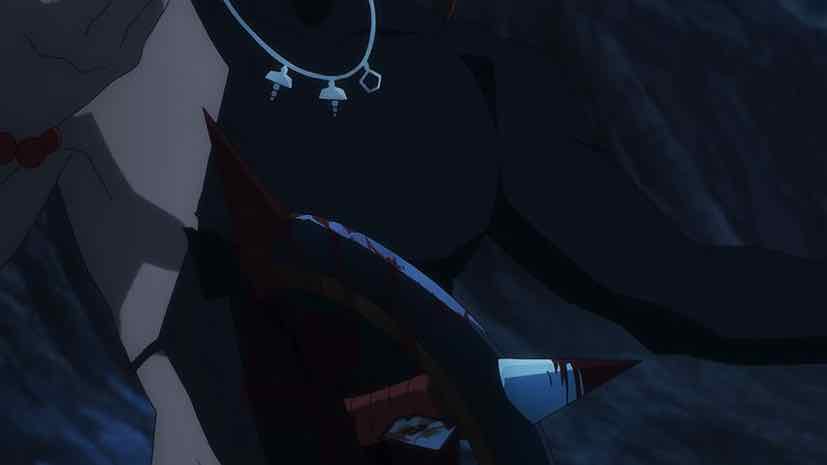 This was a fascinating and sad tale, start, middle, and end. I don’t know if there was really any difference between the Reben-ji and Sada’s group in the end, apart from their self-perception. But it’s undeniable that there exists a bond between these men, and Nio too. They were complicated human beings in a complicated world, where morality was opaque and Urobuchi’s obsession with consequentialism was put to the test. Revenger spared us the histrionics and anime cliches and told its story in its own way and at its own pace, resisting the lure of offering easy answers. In an era where original anime are rarely worthy of the name, it was a breath of fresh air and a welcome outlier.
This was a fascinating and sad tale, start, middle, and end. I don’t know if there was really any difference between the Reben-ji and Sada’s group in the end, apart from their self-perception. But it’s undeniable that there exists a bond between these men, and Nio too. They were complicated human beings in a complicated world, where morality was opaque and Urobuchi’s obsession with consequentialism was put to the test. Revenger spared us the histrionics and anime cliches and told its story in its own way and at its own pace, resisting the lure of offering easy answers. In an era where original anime are rarely worthy of the name, it was a breath of fresh air and a welcome outlier.


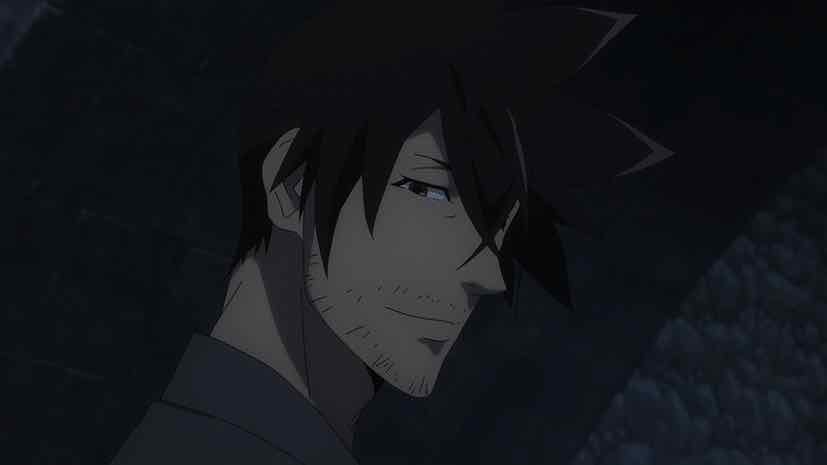
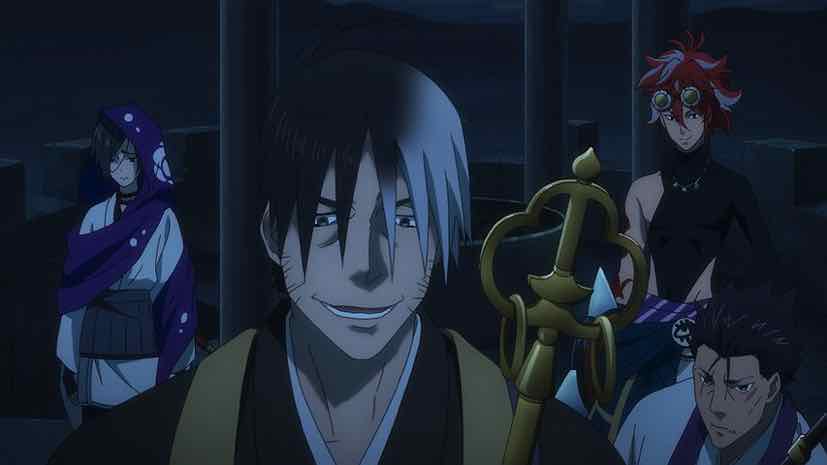
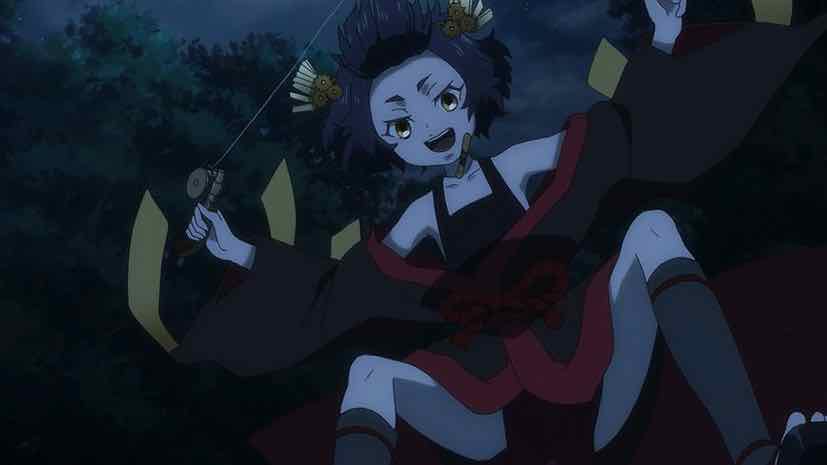
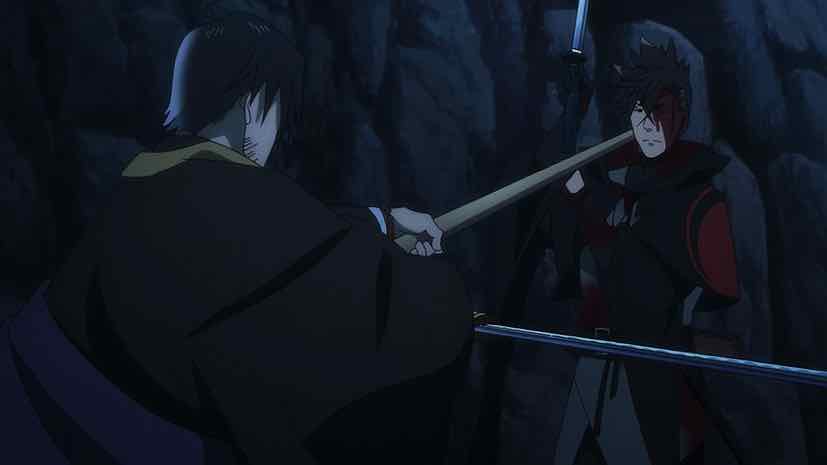
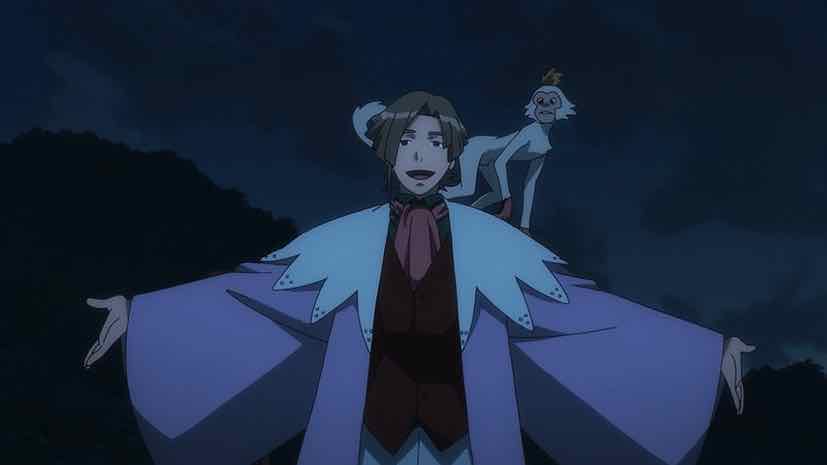
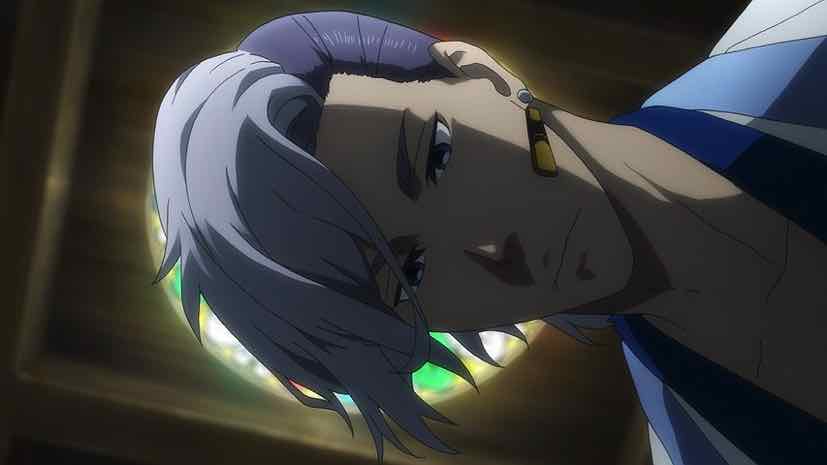
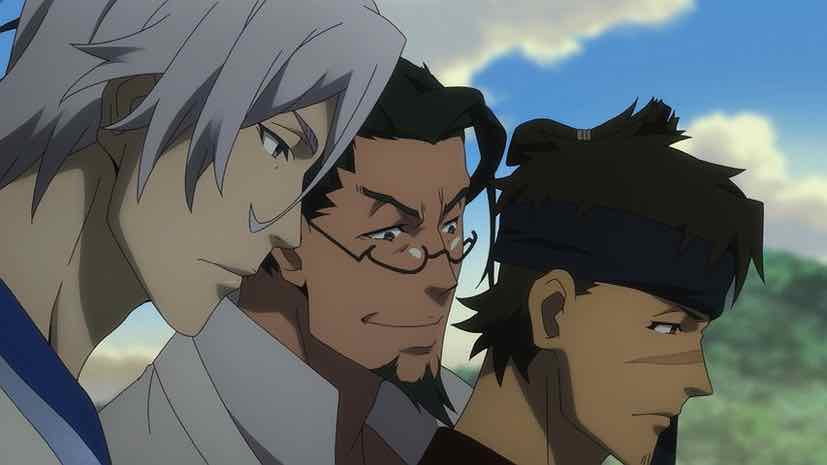
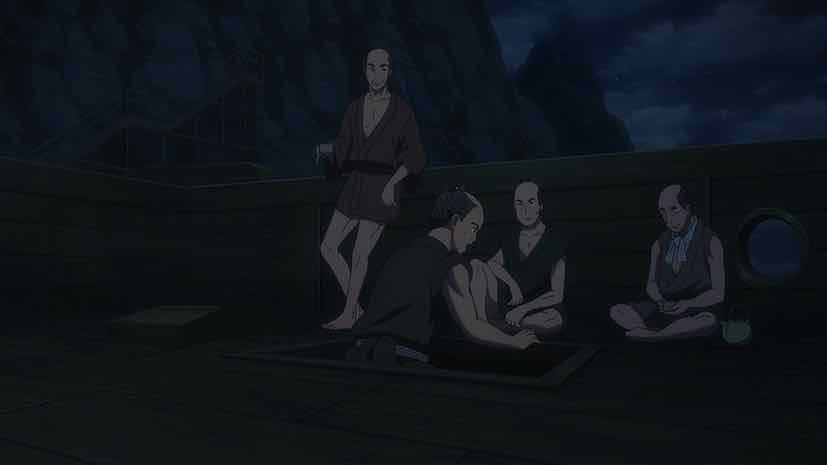
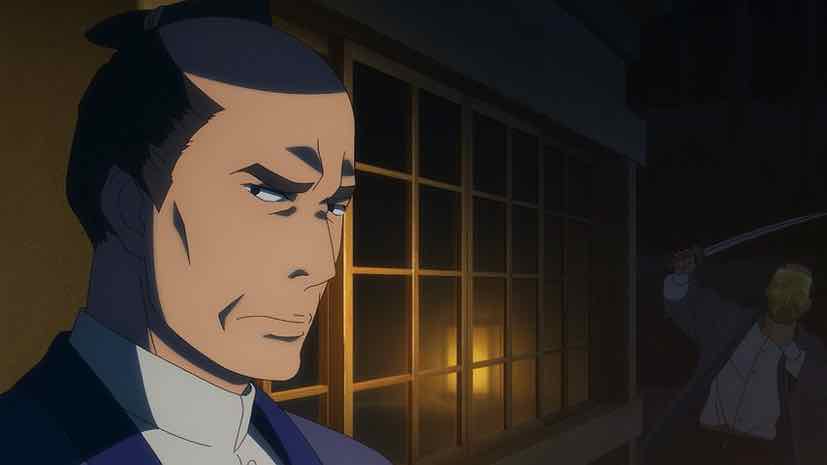
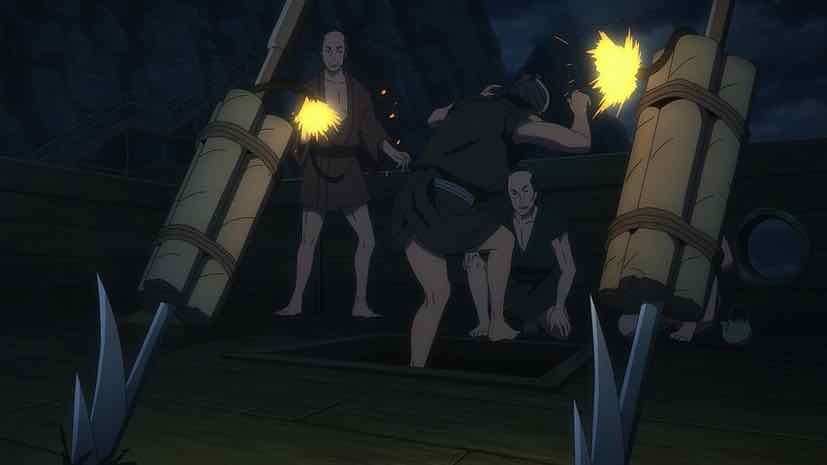
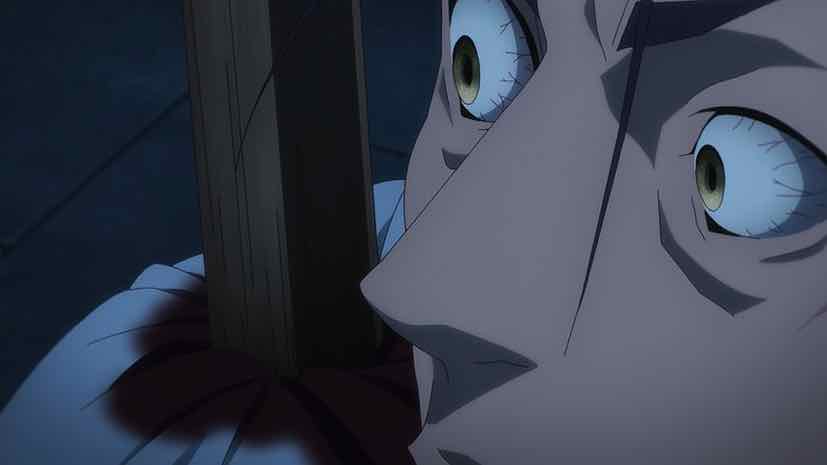
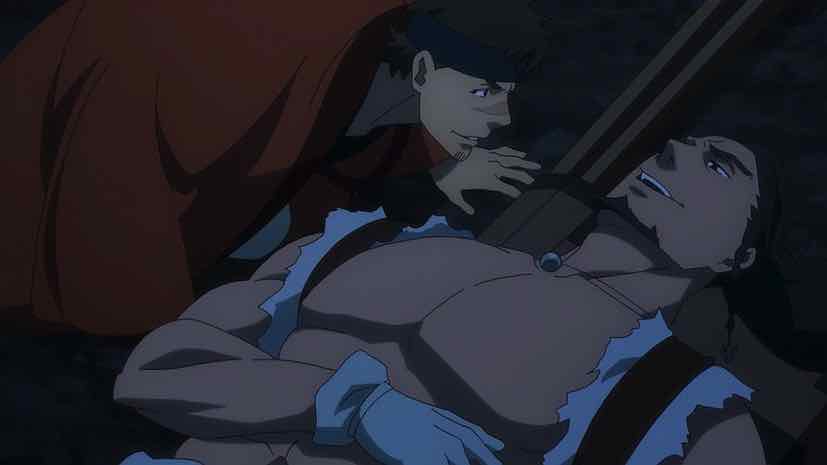
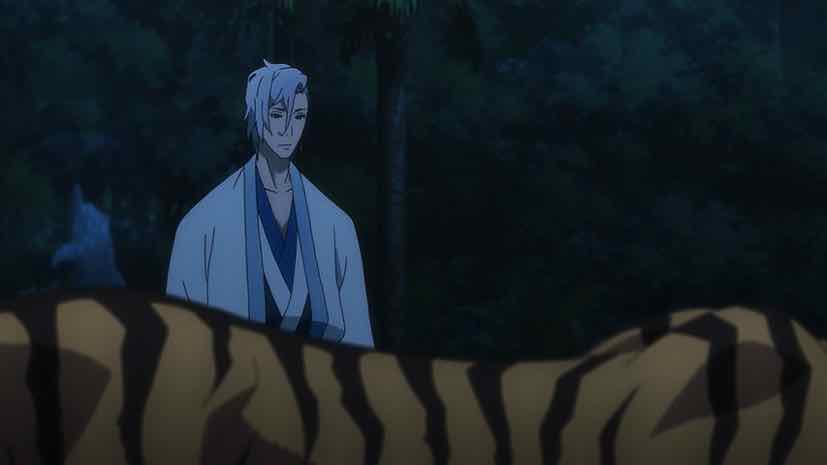
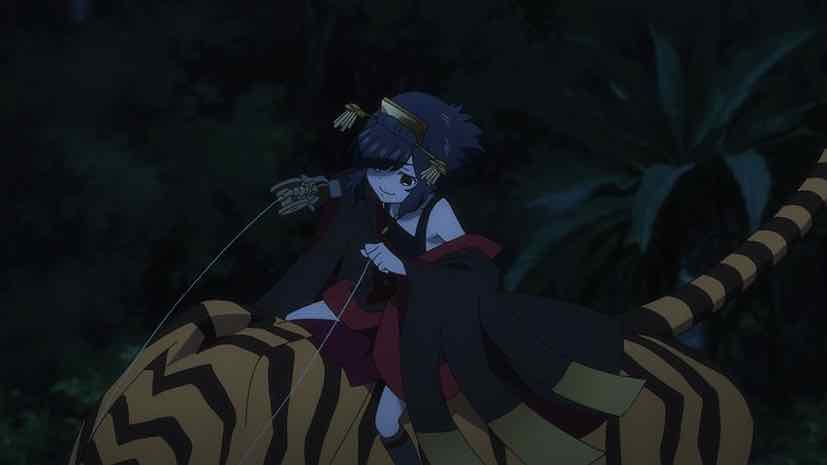
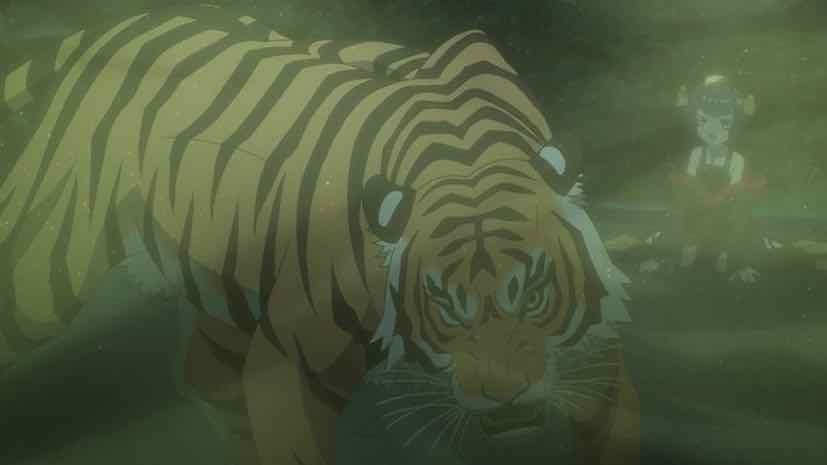
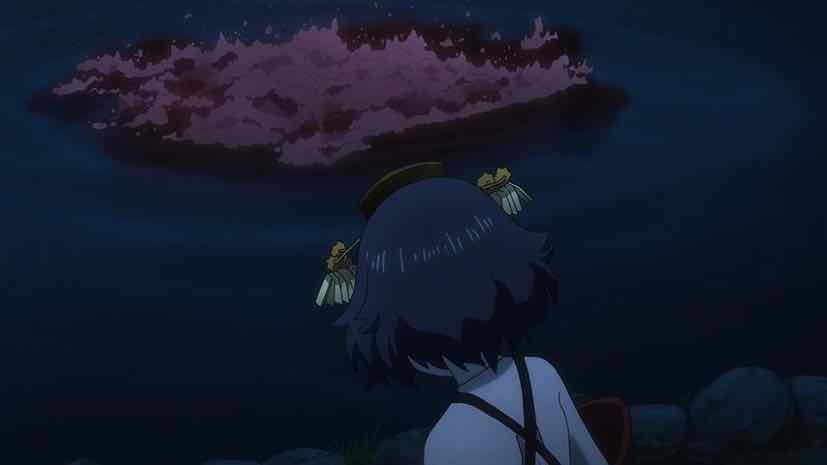
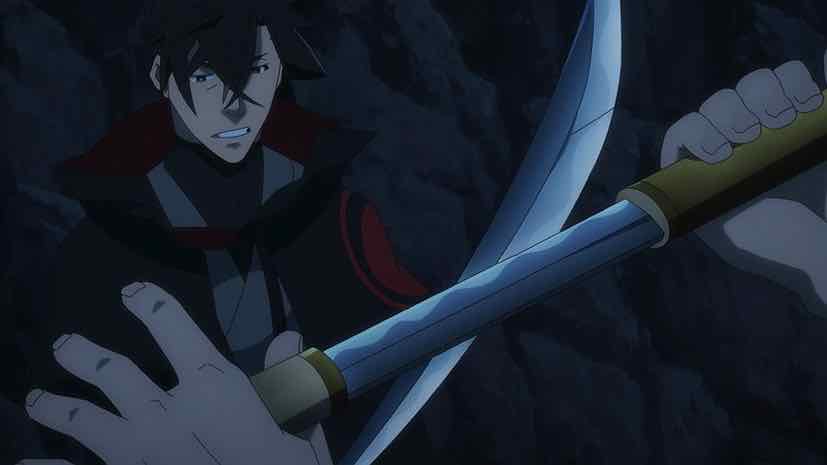
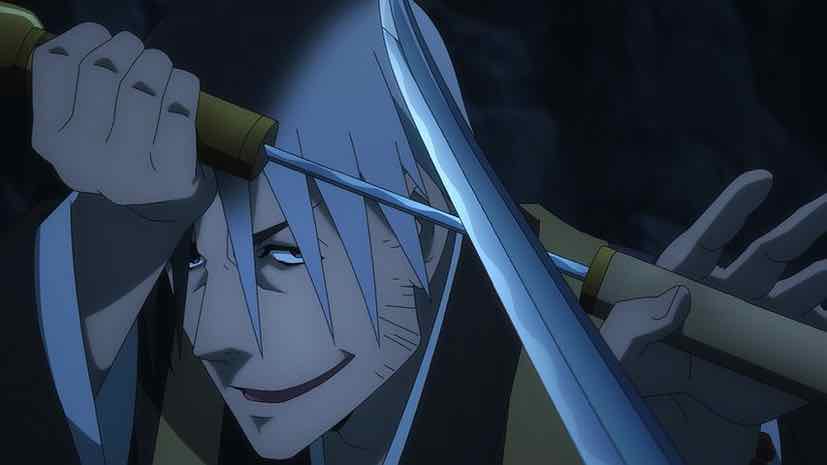
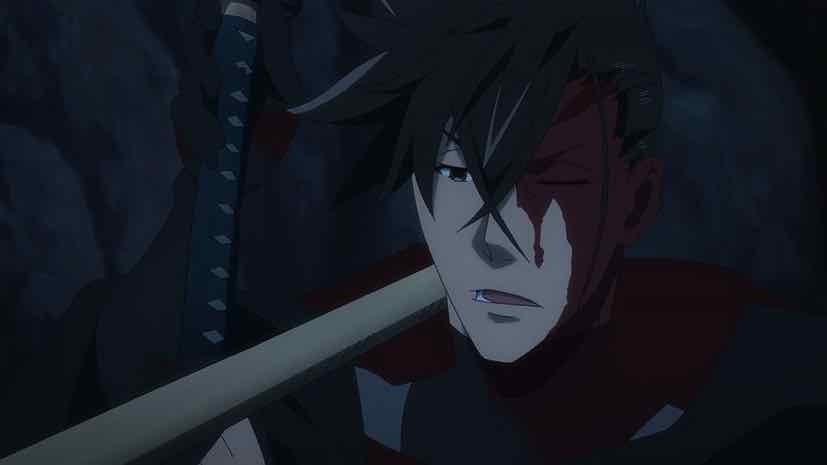
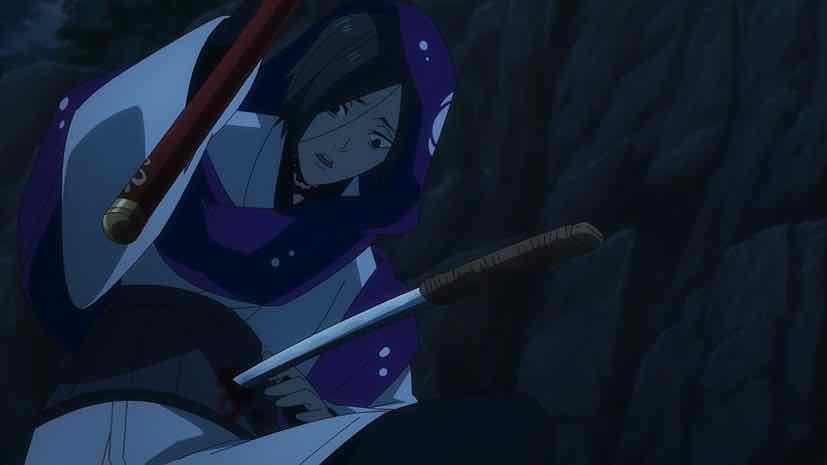
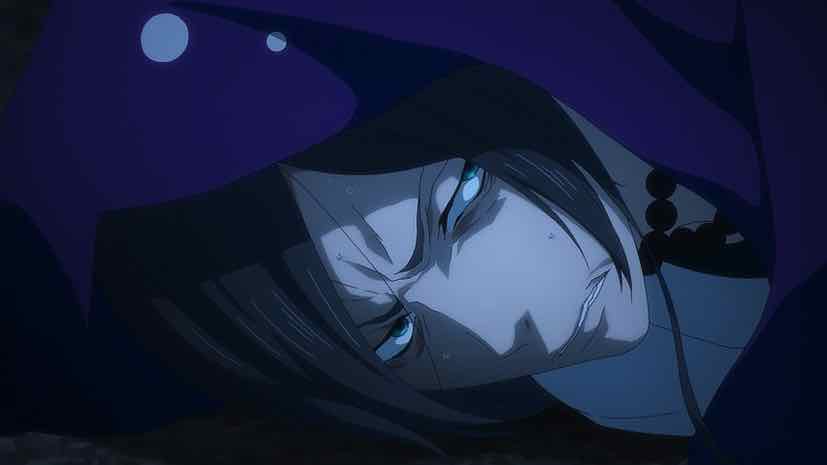
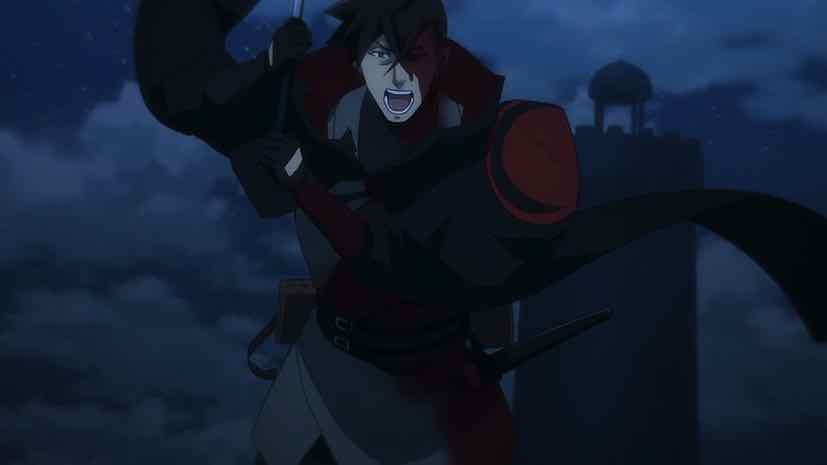
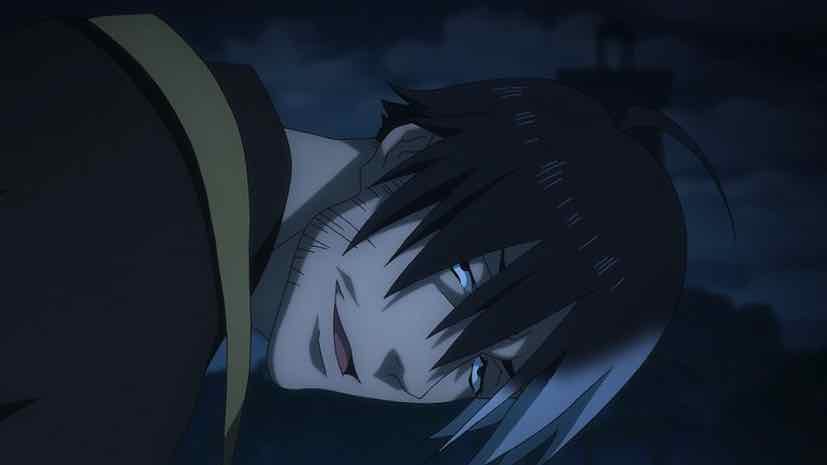
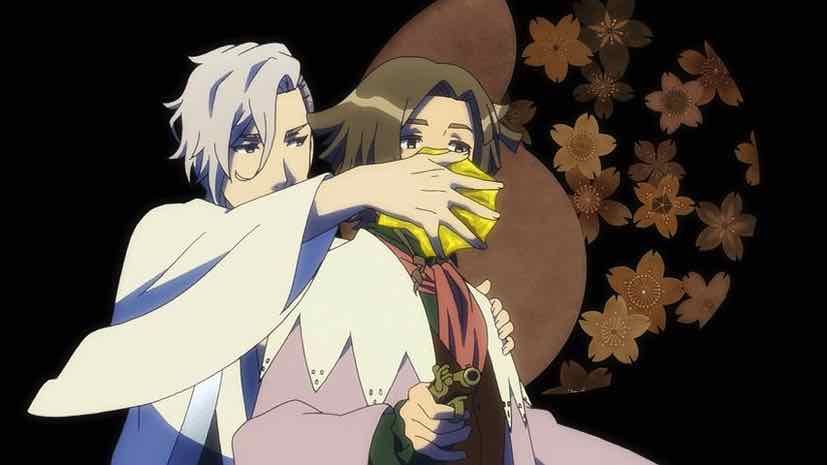
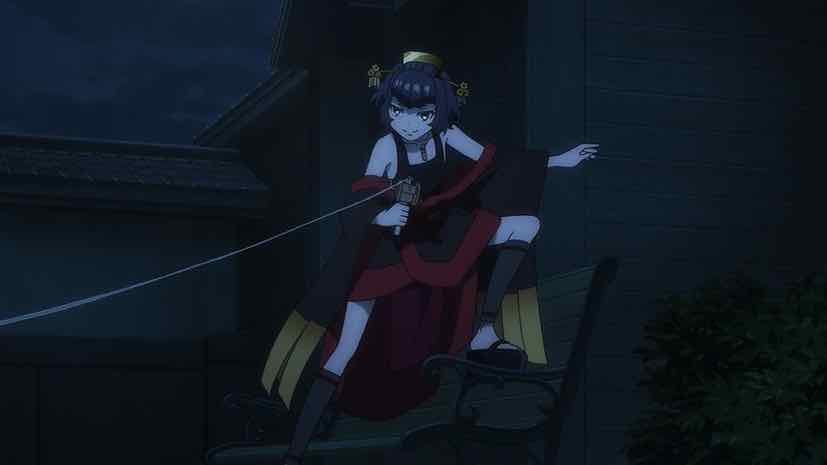
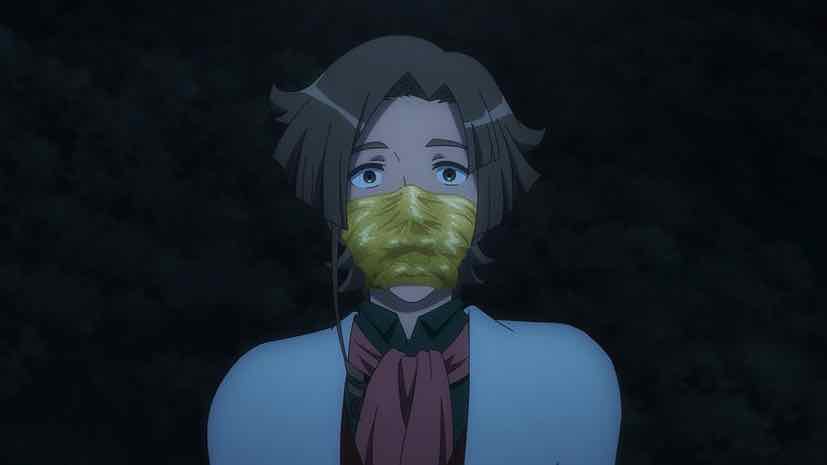
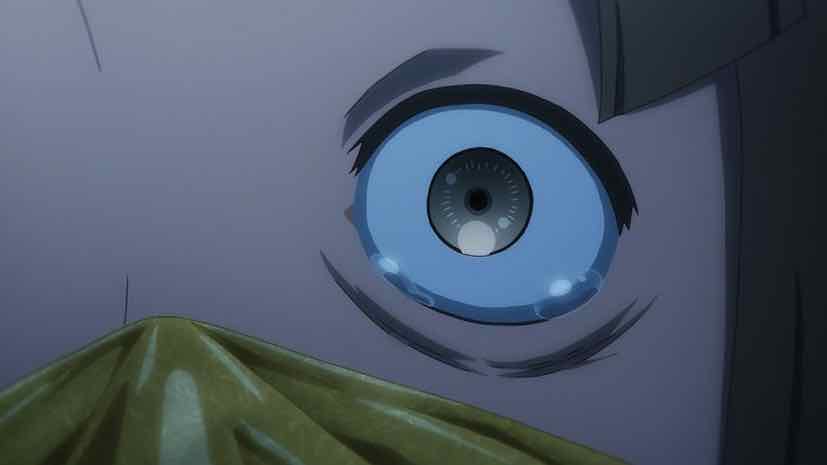
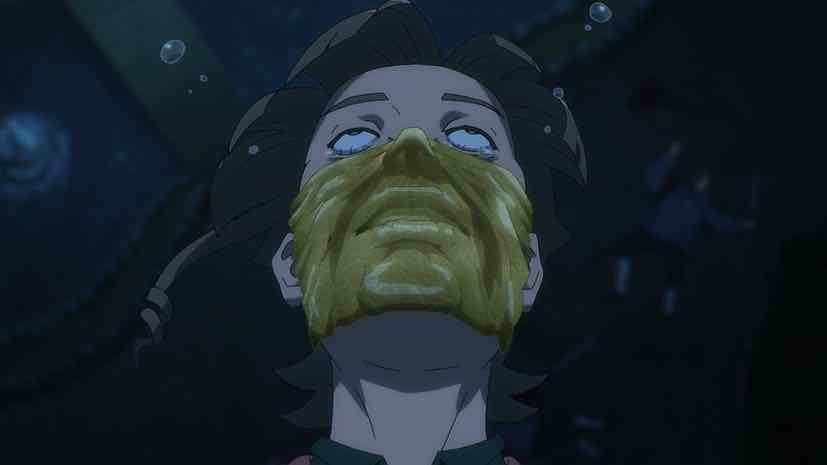
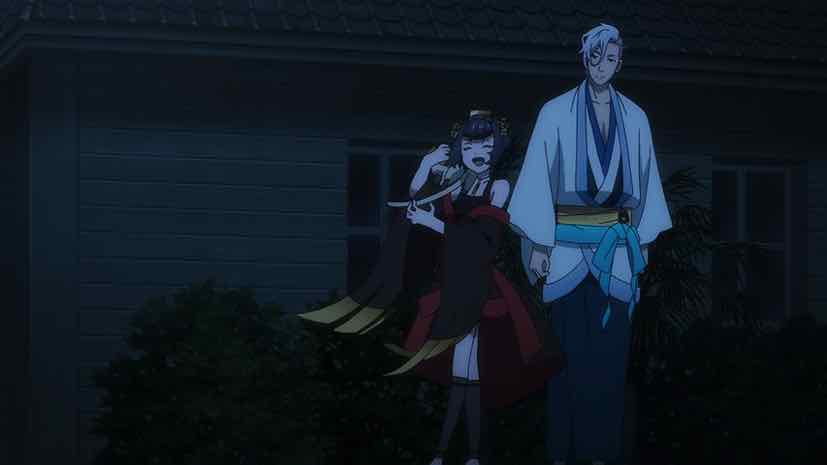
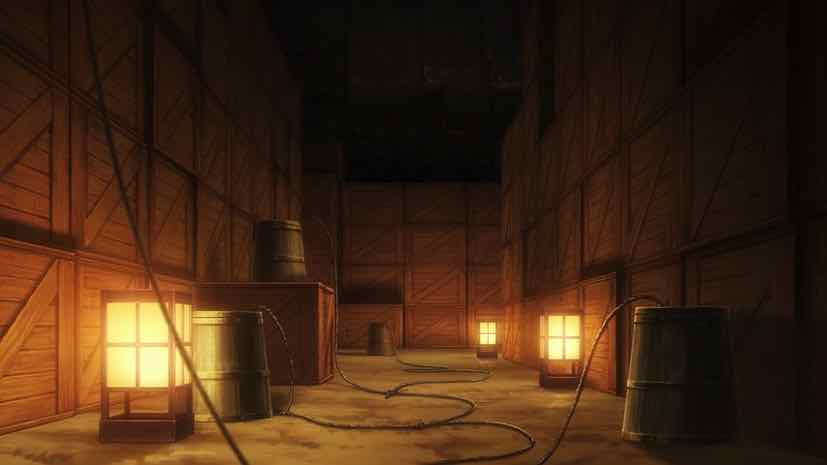
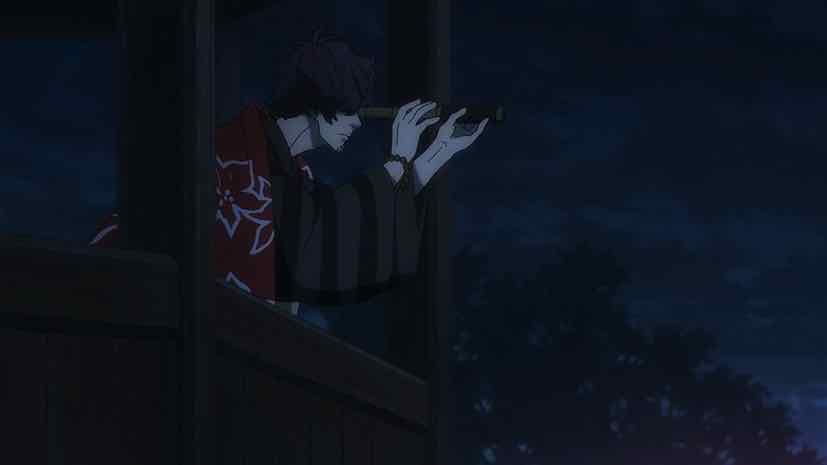
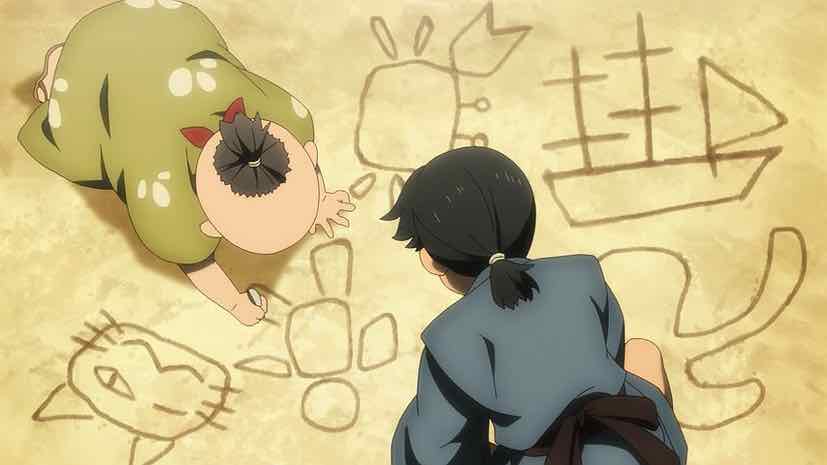
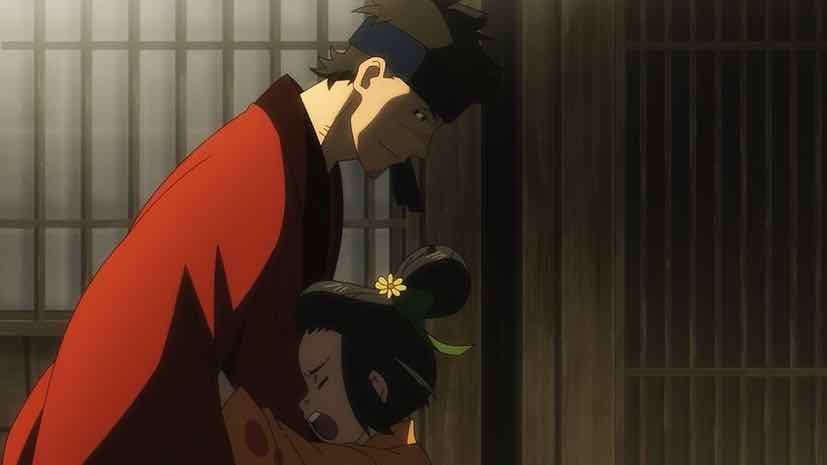
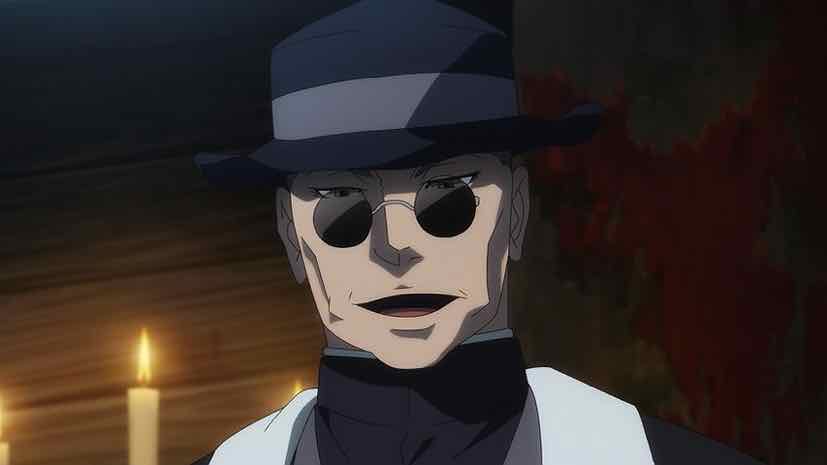
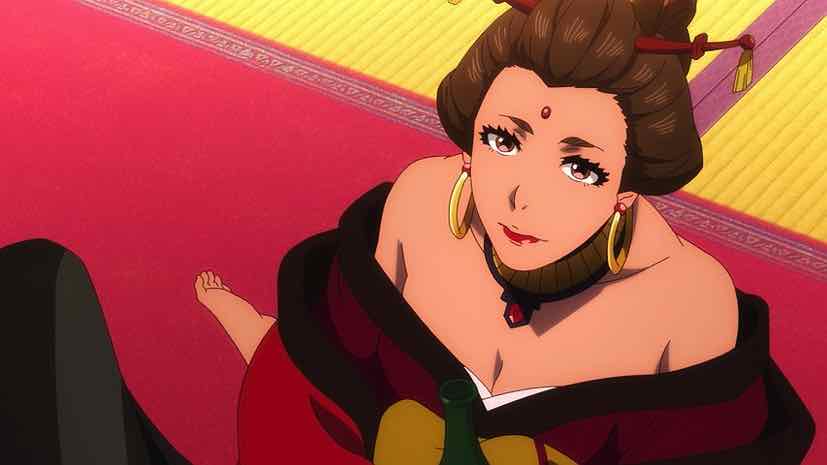
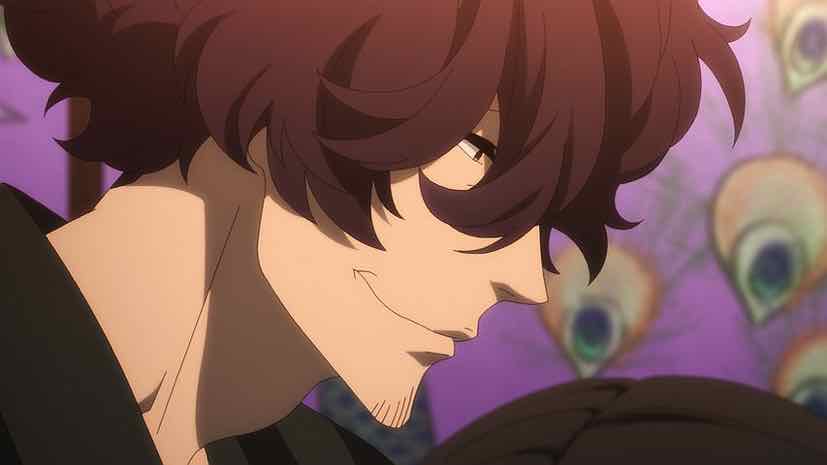
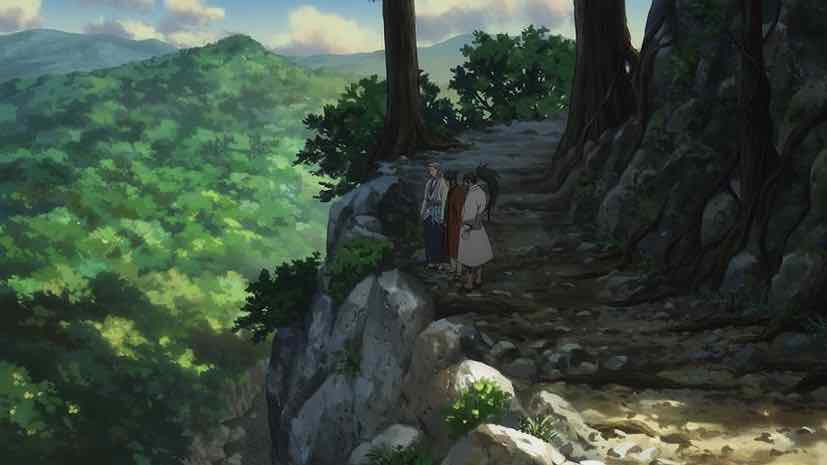
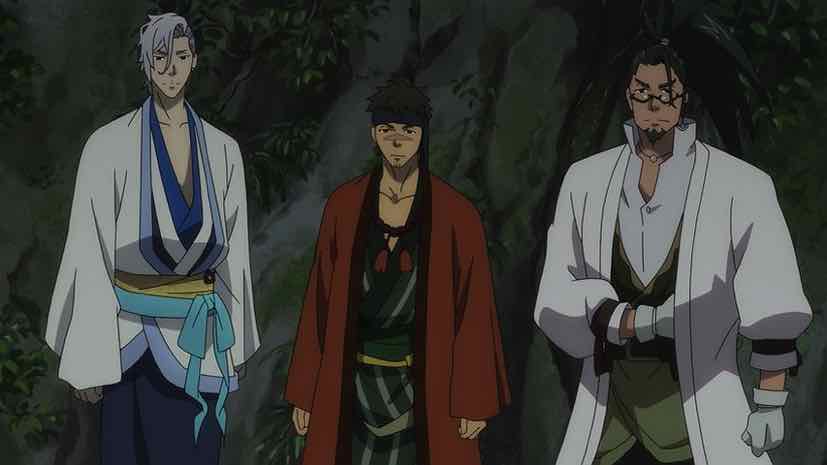
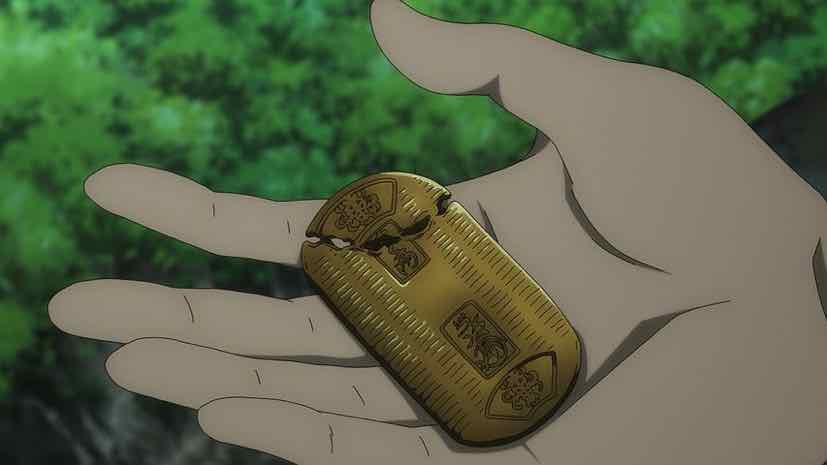
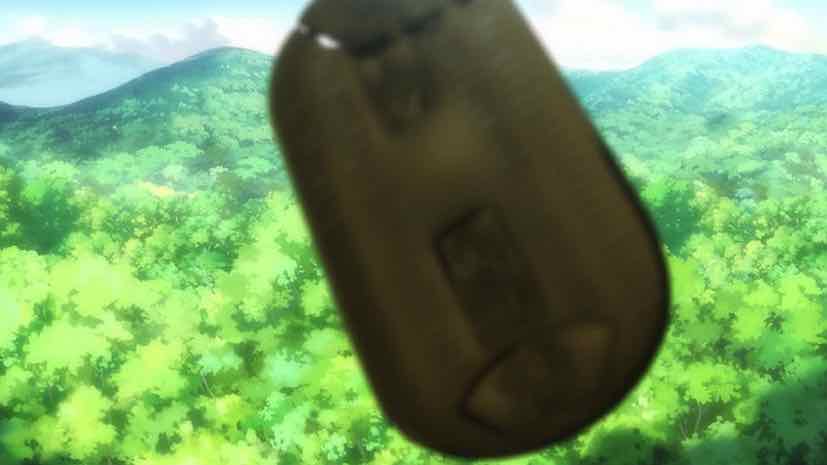
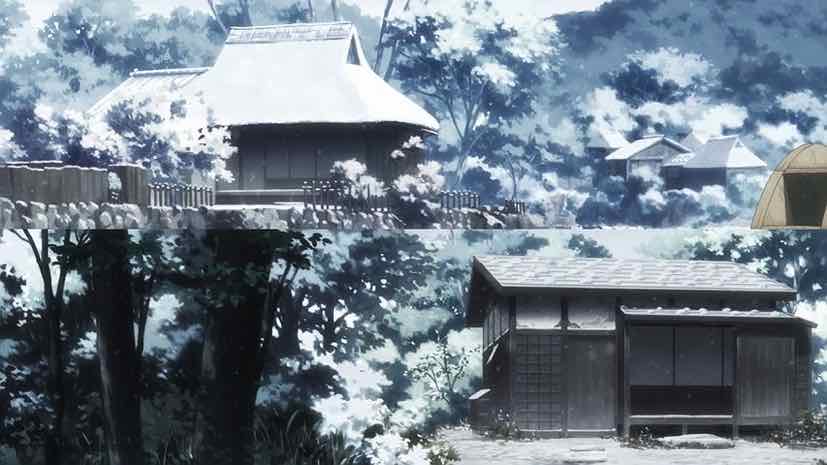
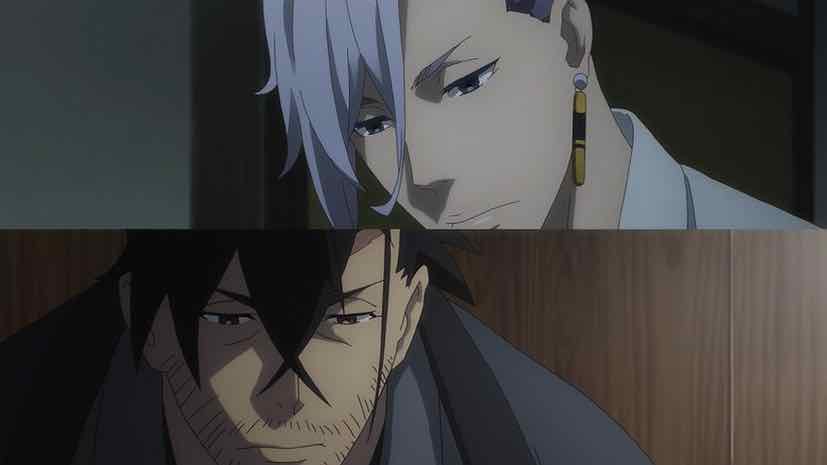
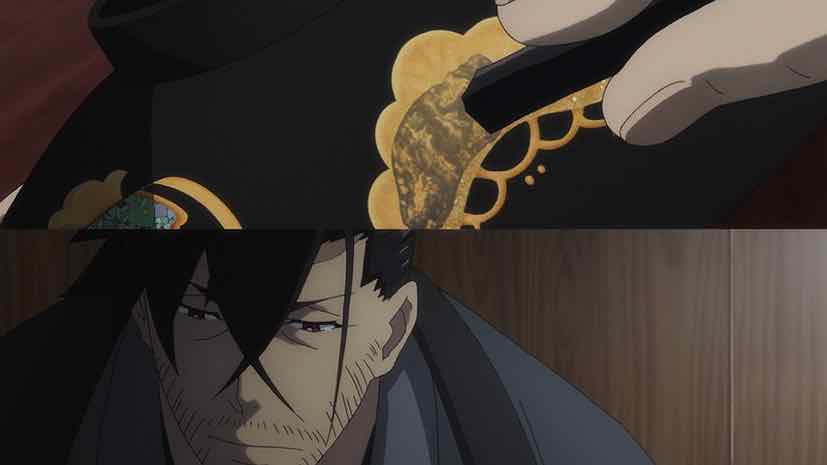
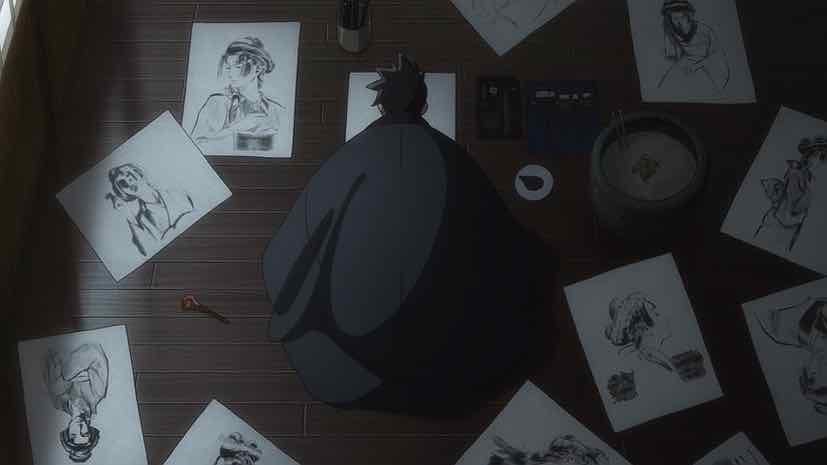
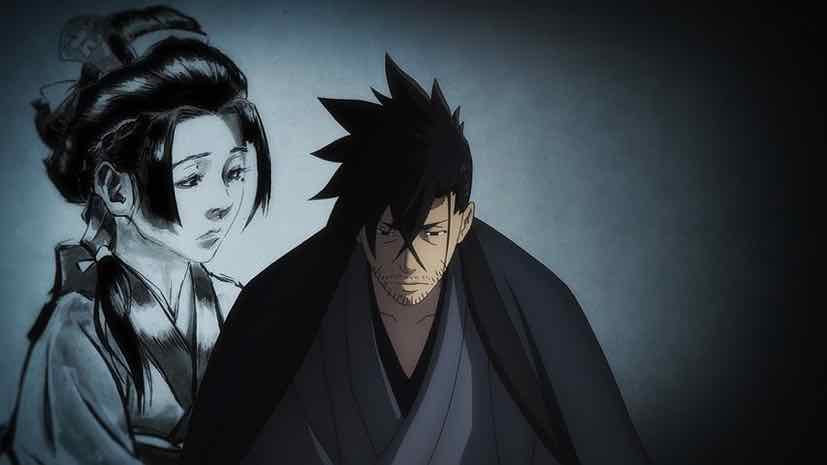
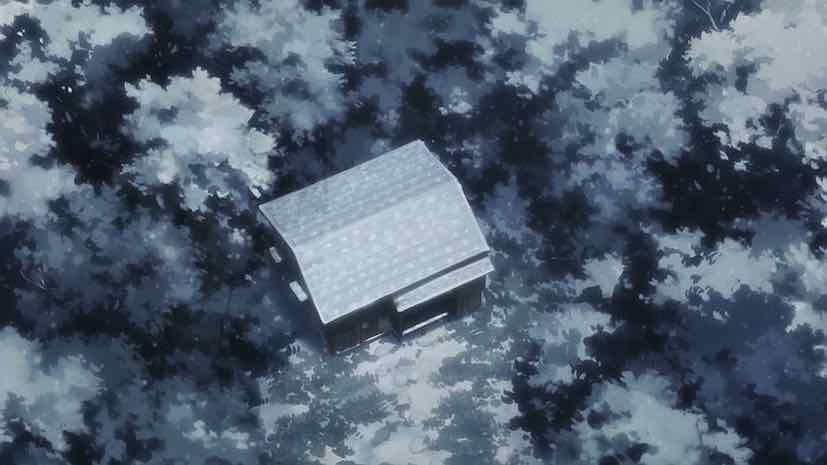
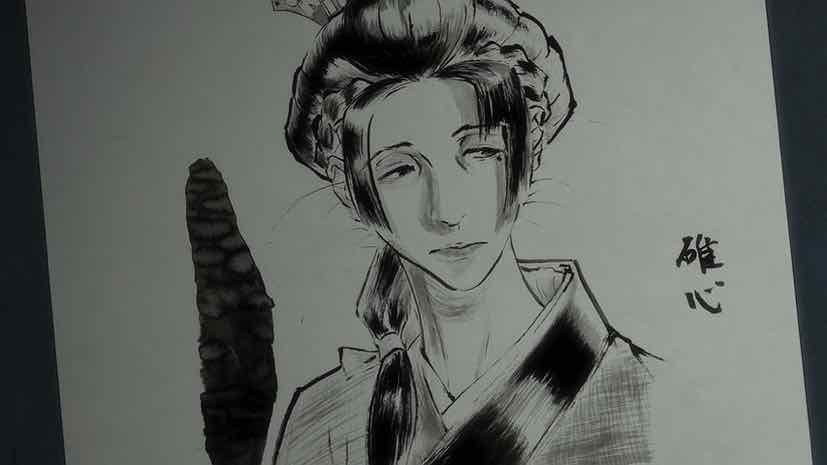
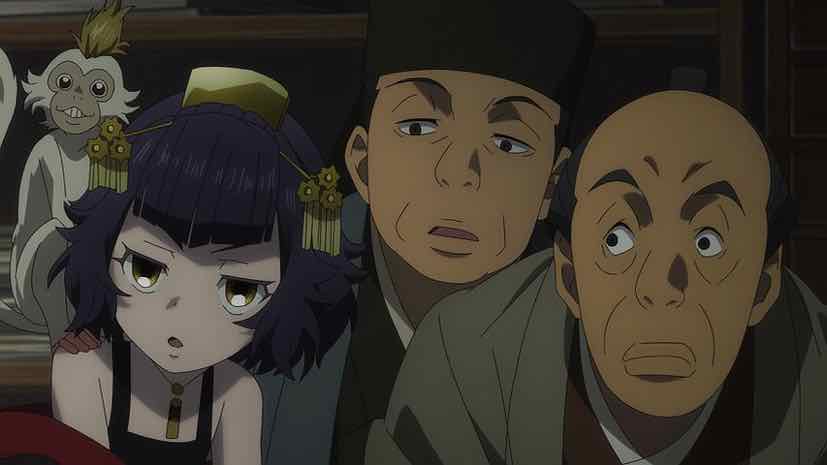
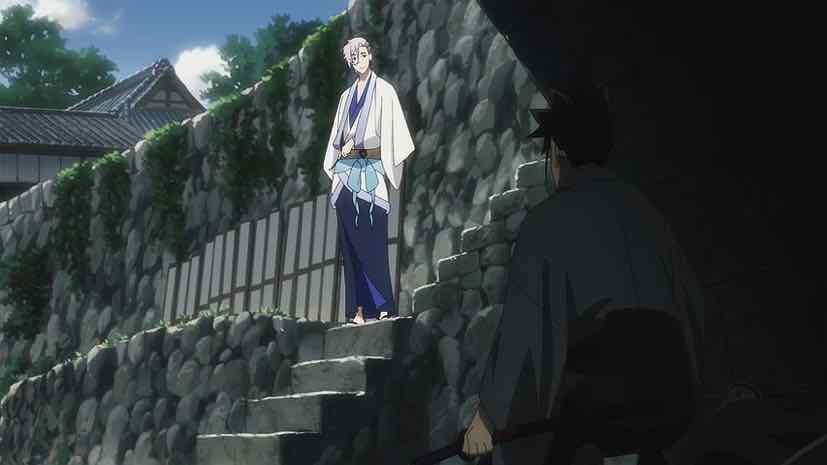
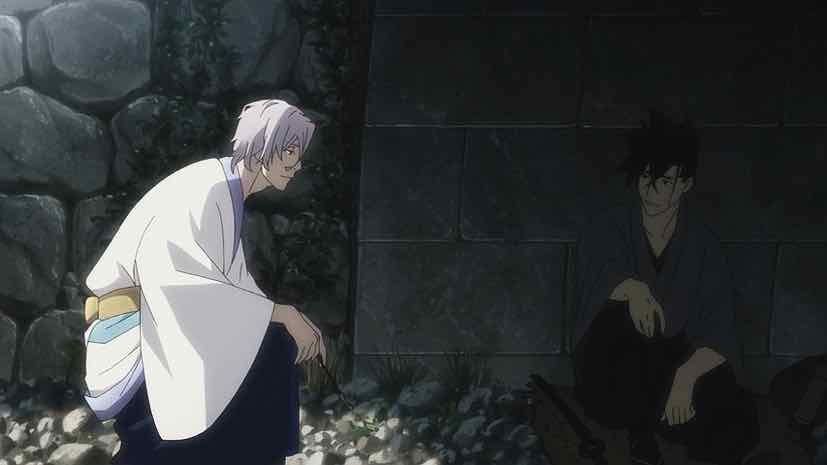
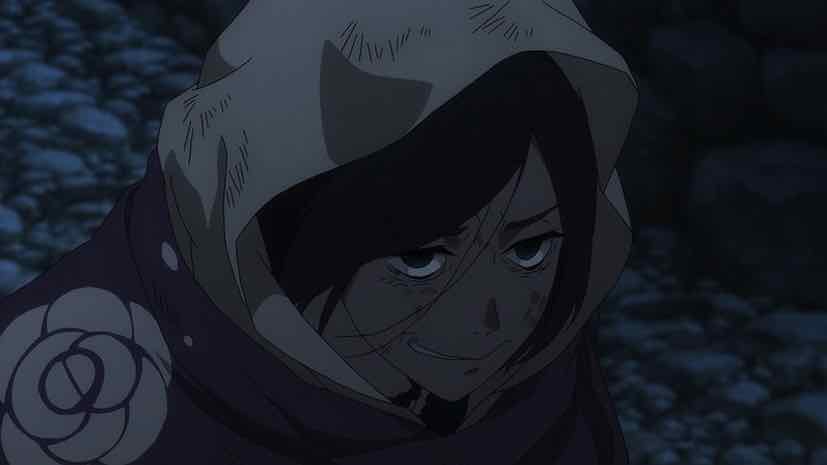
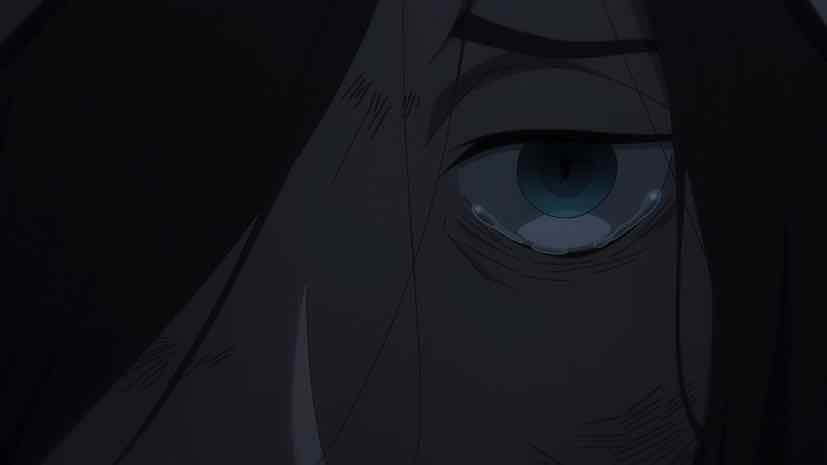
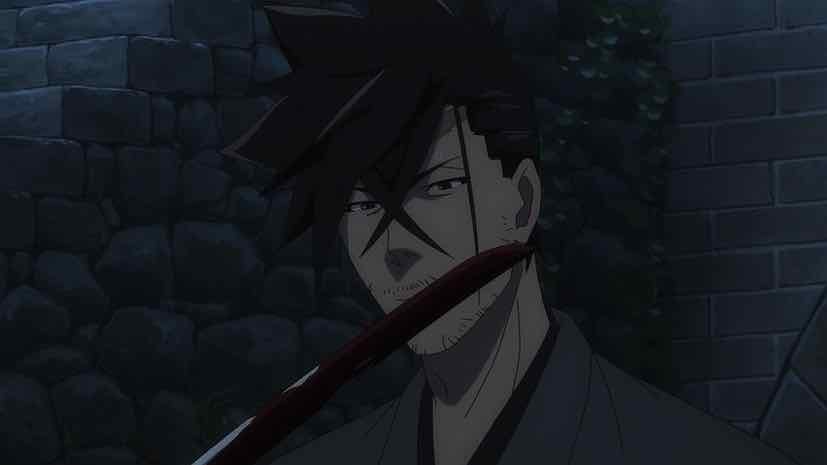
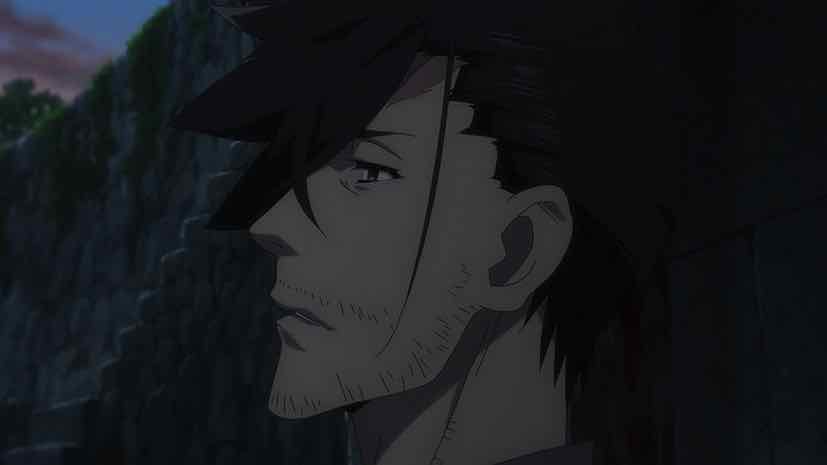
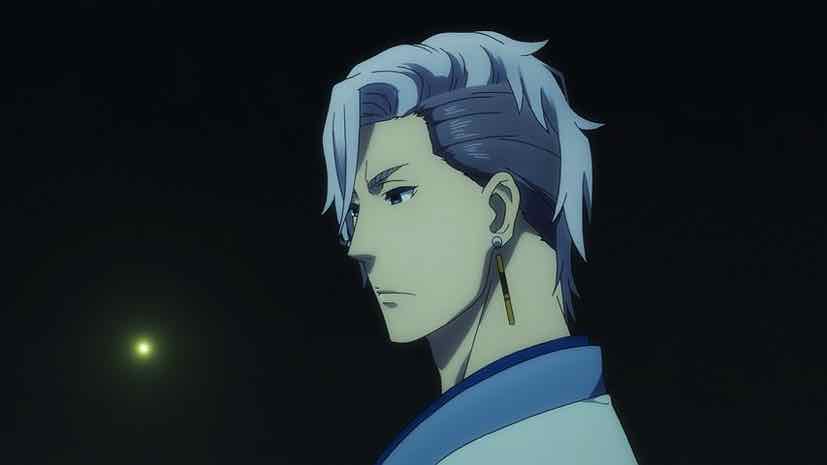
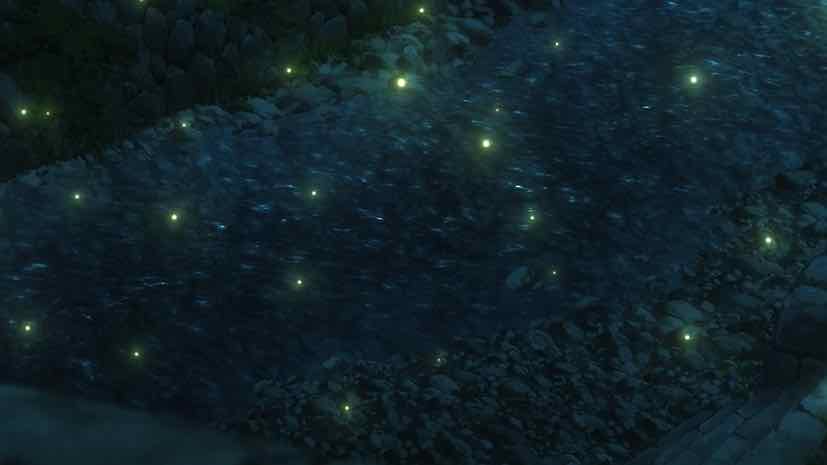
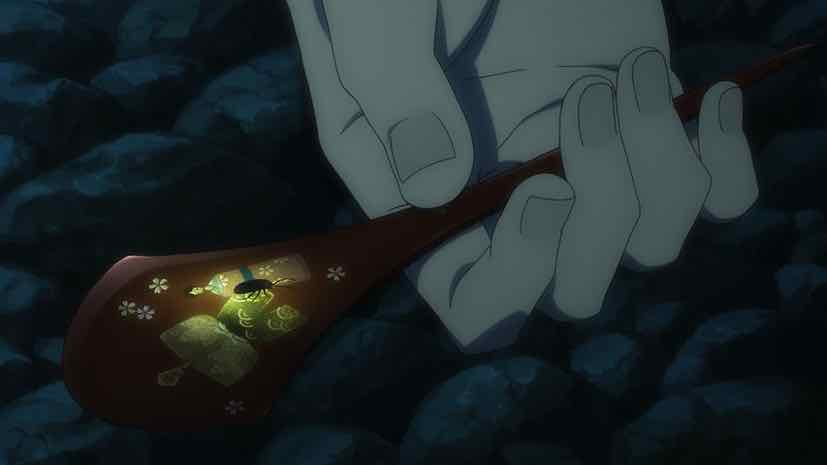
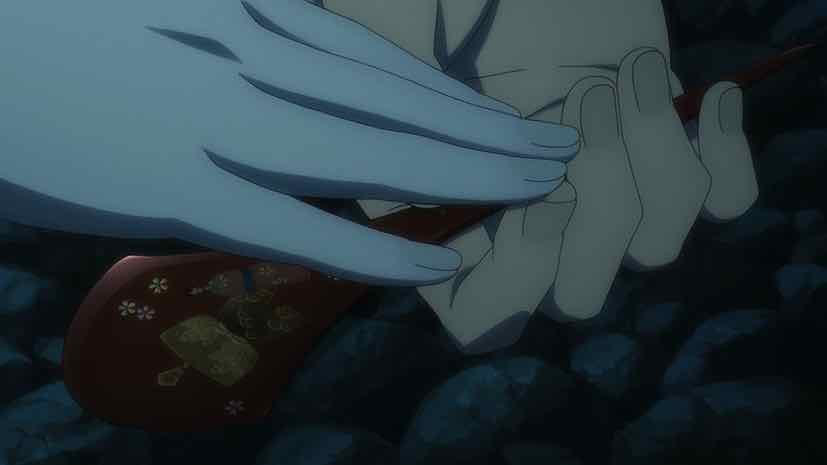
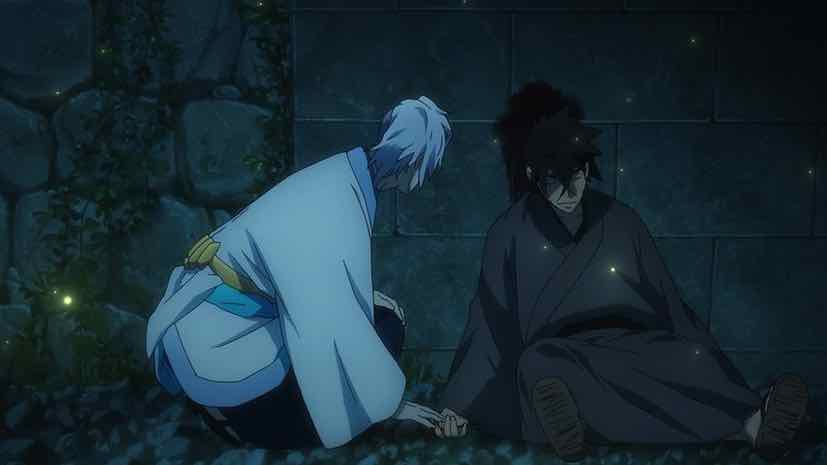
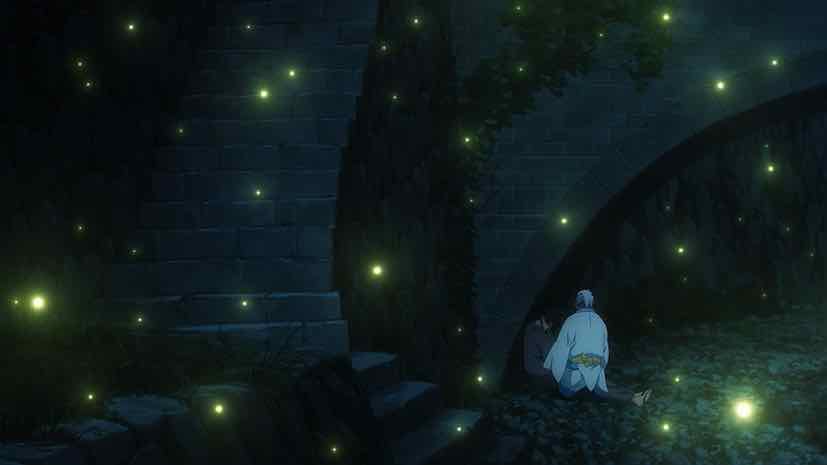
Otcho_Shogun
March 25, 2023 at 12:26 amRevenger to me was the quintessential good-but-not-great anime that you want in every season, but sadly don’t always get. The art, animation, writing, direction, music and voice acting were all good to superb.
My biggest problem with the finale was Raizou’s death at the end, which lowered the series down a bit for me from very good to good. It was the only time really, where I felt that Urobuchi’s tendence to nihilism came through to the detriment of the story and its impact.
Because it is the ultimate cliche ending of a revenge series. This twist has been better executed countless times before across multiple mediums and it can work perfectly in the right context. But here it undercuts some of the strongest thematic aspects of the entire anime. Searching for redemption, tryin to live with personal guilt and the question, if people can change their ways were integral to Raizou’s character arc. It’s what made his pursuit of painting interesting and gave meaning to the scene in the finale where they throw the coin from the canyon. Raizou is dead and Taisho is born and he has to find meaning in a new existance, that may be harder on him than death.
Instead all this gets undercut by his meaningless death at the end. To me that’s nihilist without reason and soured me a little on the finale.
SeijiSensei
March 25, 2023 at 1:26 amI share Otcho_Shogun’s reaction to the ending. I was rather hoping for one where Taishin begins to draw pictures of subjects other than his fiancee, releases himself from the psychic jail he has locked himself into, and comes into his own as an artist. I also don’t understand why he’s under that bridge again. Why isn’t he living in the nice cottage Yuuen lent him? This ending seemed unnecessarily bleak and pointless. (Yes, I know it’s Urobuchi.) At the end, I immediately commented to myself that Raizou’s story had come full-circle, but it felt contrived.
Guardian Enzo
March 25, 2023 at 4:28 pmWell, my theory is that he was under that bridge hoping to find the courage to commit seppuku.
Collectr
March 25, 2023 at 4:35 amI disagree. Had Raizou survived, it would have been a betrayal of his character arc, as it has been drawn since the very first episode. He never wanted to live after the death of his betrothed. His art was not redemption, it was the external expression of his internal agony.
I was concerned, throughout, that Urobuchi would throw in some of his pointless slaughters, as in the drowning of the helpless in Gargantia. But I feel that Raizou’s death was “earned”, that is, it was the logical outcome of the implacable logic of Urobochi’s tragic story. I’ve liked many of his works, but unlike many others of his series, this time he stuck the landing.
Guardian Enzo
March 25, 2023 at 4:30 pmI would have been fine with Raizou surviving (though it would have had to find him in a different place emotionally than he was), but I was also fine with the way Urobuchi chose to end things.
Nicc
March 25, 2023 at 1:27 pmThis episode went pretty much the way I expected, but what surprised me was that all of the Reben-ji made it out intact. The island and Shishido’s estate are littered with corpses while the burnt opium wafts in the air. Amongst the corpses is a tiger. Those piranhas will be well-fed. The set pieces were over-the-top, as expected. My favorite was how Nio and Yuuen teamed up to take down the tiger. Both Sada and Shishido meet brutal ends.
It’s the back half of the episode that’s the most interesting to me. Raizou leaves the group and “dies”, becoming Taishin. The priest, Kanou, seems non-plussed that the opium is destroyed and is back-to-business with Yuuen. Maybe he thinks his dream still has a shot… The sister puts on another guise as she joins the lair of the Pajama Police. I still wonder if she’s under orders or if she’s just simply doing her own thing now.
If there was any hope of Taishin getting a “happy ending” of sorts, it was dashed when he was still doing the same artwork. He could not live as Taishin. I myself thought he was going under the bridge to off himself, but then Sute came along. He seemed to be relieved when the faced his assailant. Sute, hoping to get some satisfaction, didn’t get any when like Taishin smiled at him like he just did him a favor. It was one last act of revenge. Him dying at the end seemed fitting to me as it was felt like he was living on borrowed time. This was a great series to follow and one of the highlights of the season.
Snowball
March 26, 2023 at 7:16 amThe series was poignant throughout and the ending was rather impactful. I would have liked for Raizou to survive but there was a lot of artistry with the tragic scene under bridge and Raizou’s death was beautifully and poetically portrayed.
Rob Barrett
March 26, 2023 at 12:40 pmI do feel like a thirteenth episode would have given the denouement some room to breathe, but I was satisfied with what we got.
Stephen
March 26, 2023 at 7:01 pmI really like this anime, solid and minimal (no useless scenes) story telling from start to finish. It gave me vibes of older anime of similar ilk. I think unlikely to be still top 10 at the end of the year but I am sure it will make it to the top 20 lists.
Raikou
March 26, 2023 at 7:07 pmThe series could go either way, whether Raizou survives or not, but I had no problem if he were to die.
In the end, Yuuen was only giving extended life for Raizou to ‘make it right’, but Raizou couldn’t living the life that was given to him, so maybe the fact that he got killed by Sute is a proper death for him.
DonkeyWan
March 27, 2023 at 1:56 amI think the death of Raizou was actually really well done. Firstly, having achieved his revenge the question over his fate was left unclear. Clearly the group were willing to ignore their previous request and accept him in his new role as an artist. What was very telling, however, was the scene showing the multiple drawings of his deceased fiancee. Clearly he was still haunted by her suicide. When Nio observes his new drawing and notes ‘he hasn’t changed’ it’s an indication that Raizou himself has not accepted his new life as an artist and is instead in a tortured limbo between his old life and his new one. The location of his death is no accident either, the place where he should first have met his death either to the revngers, or at his own hands. When Sute ‘the pawn’ enacts his own revenge, Raizou turns and gives him the most beatific look, thankful that finally his torment is at an end. The final scene, where his gift to his fiancee is taken from his hand, is just moving, framed as it is against the restful repose he now cuts.
Guardian Enzo
March 27, 2023 at 6:35 amThe location is no accident, but why did Raizou go there if he wasn’t considering suicide himself?
DonkeyWan
March 27, 2023 at 7:53 amI agree completely, he absolutely was considering it. I don’t think it was fear though, rather indecision. He has new comrades and a possible life ahead, weighted against the sins of his old one. Sute took the decision away from him, hence his sense of relief and release.
Rob Barrett
March 27, 2023 at 2:33 pmYes, I think this is exactly it. Sute takes the decision out of Raizou’s hands. He doesn’t have to worry about letting Yuuen down by killing himself (and thus rejecting the second chance Yuuen offered him).
Cat
March 27, 2023 at 1:58 amIt says something about Urobuchi’s ability as a writer that this series could end with either Raizou surviving or dying, and it would still make thematic sense. In this case, Raizou has come full circle, and he didn’t escape the circle of revenge. I’m probably reading too much into it, but I’m thinking the river represents Sanzu no Kawa. Yuuen pulled him back once, and this time he accepts his end.
The fact that this original series get made at all – and it’s a great series – makes me feel a bit more hopeful about the anime industry. Thank you for blogging this underrated series. I enjoy reading your reviews every week.
Guardian Enzo
March 27, 2023 at 6:32 amThank you, that’s very kind of you! I’ve been despairing of “original” anime (2022-23 look decent overall but it’s mostly because enough good manga sell well enough to get adapted), but an original like this is very encouraging. Even if it’s relatively ignored.
Pastuzo
March 28, 2023 at 1:42 pmBeautiful series. I am glad I watched it. Thanks for recommending it. The last original series I watched of Urobuchi was Gargantia and I think this series was better than Gargantia’s. The fact that Urobuchi chose for Raizou to die is him saying that sometimes we can’t really undo the wrongs we have done in the past and it is simply too painful to go on. Sometimes there can be redemption as Yeun has hinted at for Raizou but in the end Raizou couldn’t get over his wrongful actions.
Guardian Enzo
March 28, 2023 at 3:14 pmYVW. Not much makes me happier than having readers watch a good show they’d otherwise miss because I called it out.